The height of learning
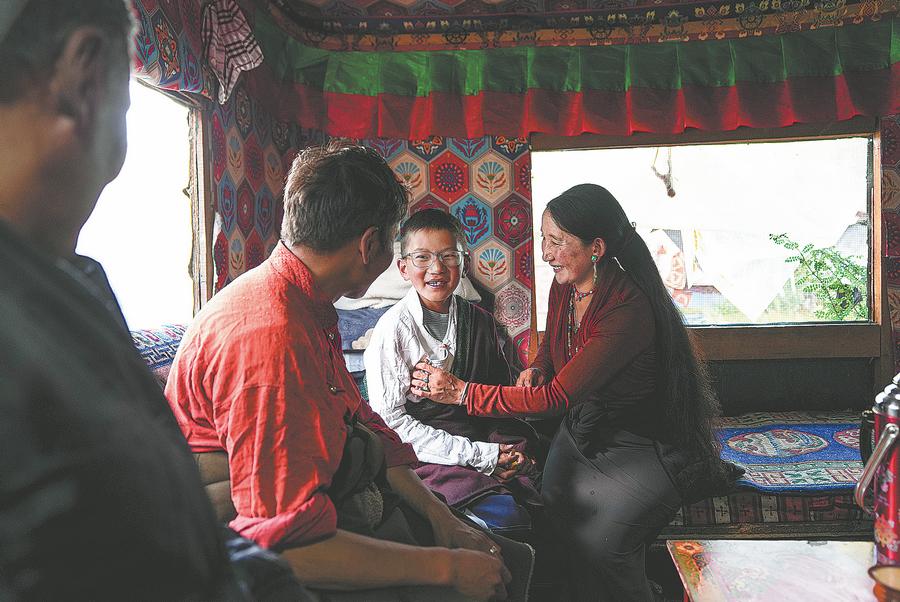
Konchog Rapten and his mother (right) enjoy quality time in their home in the summer pasture in Nyingchi, Xizang autonomous region. (JIGME DORJE/TENZIN NYIDA/XINHUA)
About 4,000 meters above sea level, in the highland area of Nyingchi, Southwest China's Xizang autonomous region, lies a vibrant primary school. It is where 10-year-old Konchog Rapten in Nyangpo township thrives in his fifth-grade studies.
The Nyangpo Township Central Primary School stands as the highest school in the township, accommodating 397 students, most of whom are from alpine pastoral regions, with some living more than 50 kilometers away from home. Consequently, most opt to board.
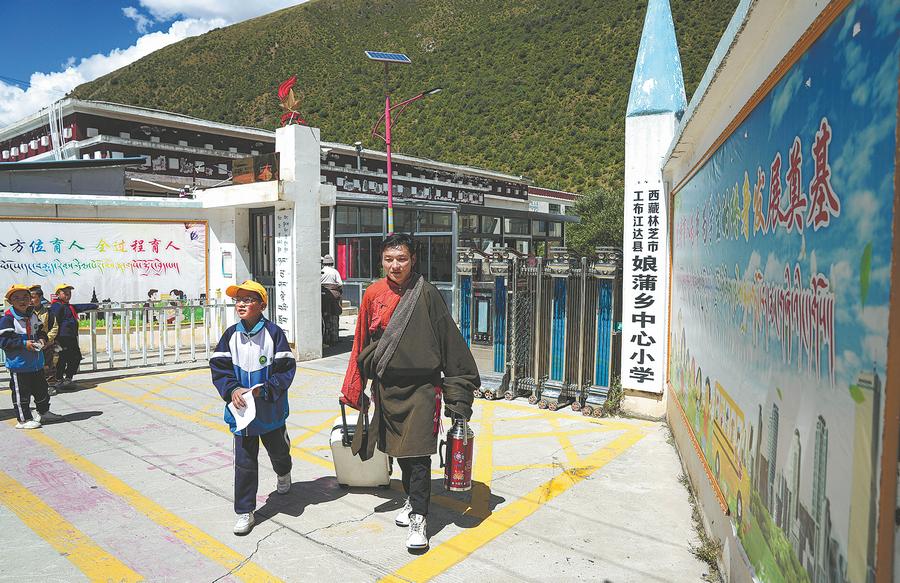
Konchog Rapten (left) is picked up by his father from school in Nyingchi to go to the summer pasture for a four-day break. (JIGME DORJE/TENZIN NYIDA/XINHUA)
Equipped with modern facilities, including classrooms with interactive touch-screen teaching systems and heating, the school has indoor and outdoor basketball courts and two soccer fields.
To ease the burden of daily commuting, the school is operated on a special calendar that sees students attend for 10 days and then enjoy a four-day break.
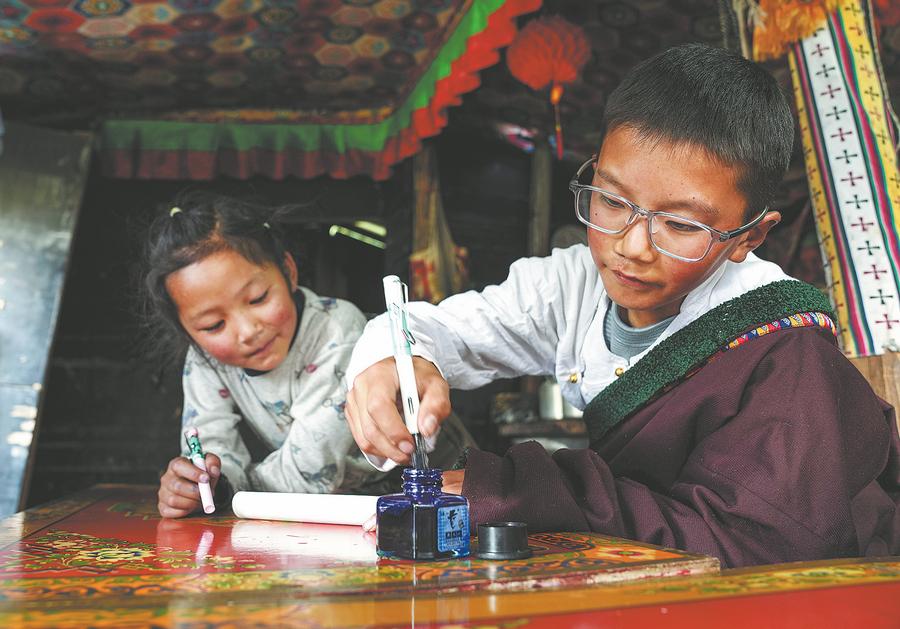
With his younger sister at his side, Konchog Rapten demonstrates his Tibetan calligraphy with a pen. (JIGME DORJE/TENZIN NYIDA/XINHUA)
For Konchog Rapten's father, the schedule is well designed for his son during the summer, when the family moves to the pastures, and on his days off, Konchog Rapten returns to them. Amid the verdant hills and flowing water, he assists his father with herding and aids his mother in tasks.
"If not for boarding facilities, balancing daily commutes and our bustling lives would be incredibly challenging," the father says, adding that their summer pasture is about an hour's drive to school.
Every day, after washing up and having breakfast in the morning, Konchog Rapten begins his day of study with his classmates.
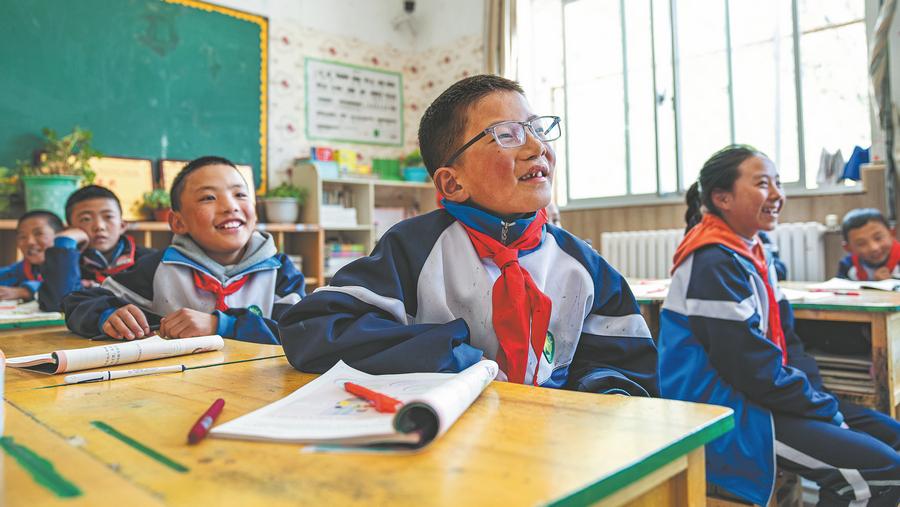
Fifth-grader Konchog Rapten, in glasses, concentrates on a lesson at the Nyangpo Township Central Primary School in Nyingchi, southwest China's Xizang autonomous region. (JIGME DORJE/TENZIN NYIDA/XINHUA)
In addition to three daily meals, they enjoy snacks like bread, fruit, and yogurt during breaks at the school. After evening study sessions, students return to the dormitory before 10 pm. Konchog Rapten takes pride in his proficiency in Tibetan calligraphy, often showcasing his skills to his younger sister upon returning home. Students in Xizang have been enjoying 15 years of publicly funded education — from kindergarten to high school — since the 2010s. Apart from preferential compulsory education policies, children of farmers and herdsmen in the region are exempted from paying tuition and get free meals and dormitories in schools.
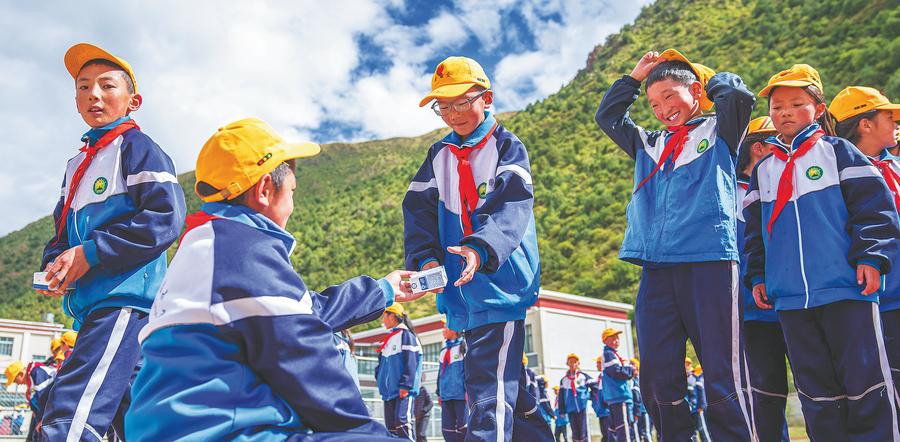
During a break at school, students line up to get milk. (JIGME DORJE/TENZIN NYIDA/XINHUA)
The Xizang autonomous region has witnessed a remarkable transformation in its educational landscape since the region started practicing democratic reform in 1959 with the region's investment in education increasing to 39.3 billion yuan ($5.52 billion) last year from more than 1.82 million yuan in 1959, according to the regional government work report delivered in January.
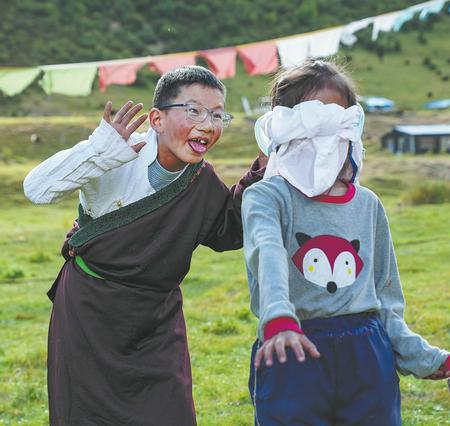
Konchog Rapten (left) has fun with his cousin whose eyes are covered by clothing. (JIGME DORJE/TENZIN NYIDA/XINHUA)
The report shows that the educational subsidy, including nutrition fees, in Xizang has been raised to 5,620 yuan per student per year this year, benefiting 746,000 students.
By the end of last year, Xizang boasted 3,472 schools at various levels, with 960,000 students — 26.3 percent of its total population — receiving tuition, according to data from the regional education authorities.
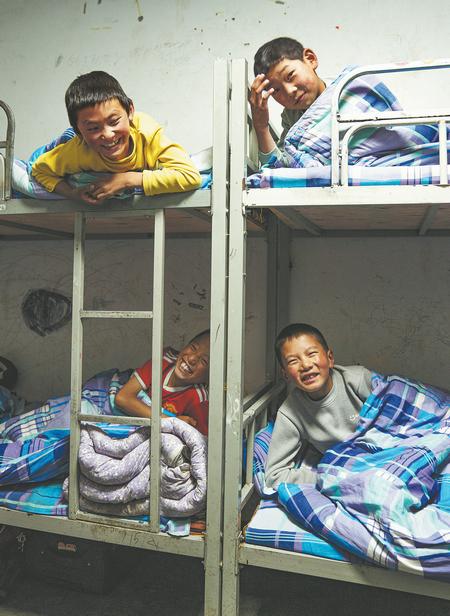
Before the lights are turned off, Konchog Rapten (below right) and his roommates enjoy a moment in the dormitory. (JIGME DORJE/TENZIN NYIDA/XINHUA)
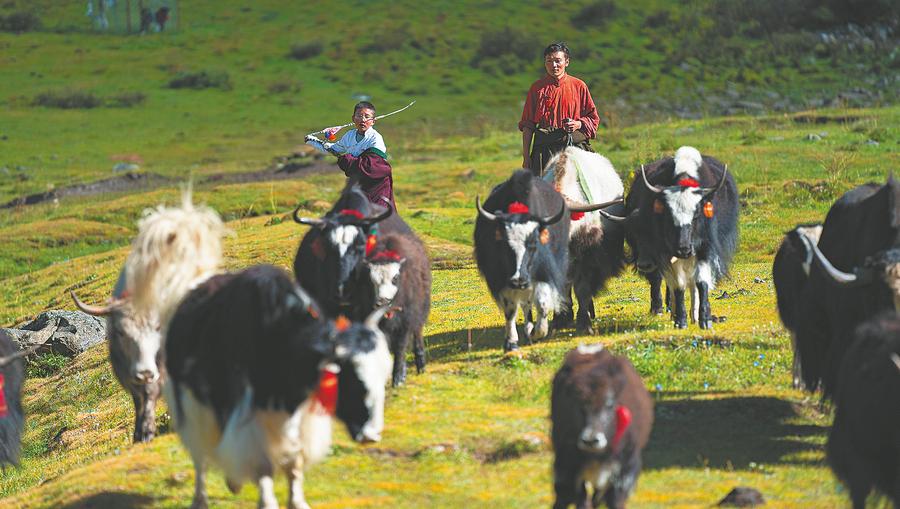
At the summer pasture, Konchog Rapten (left) and his father herd cattle. (JIGME DORJE/TENZIN NYIDA/XINHUA)
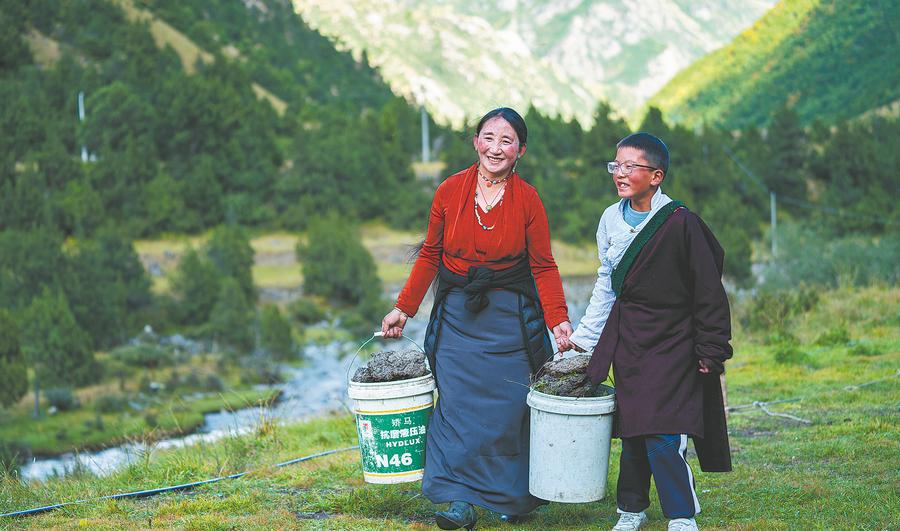
With spectacular mountains in the background, he helps his mother with the chores. (JIGME DORJE/TENZIN NYIDA/XINHUA)
